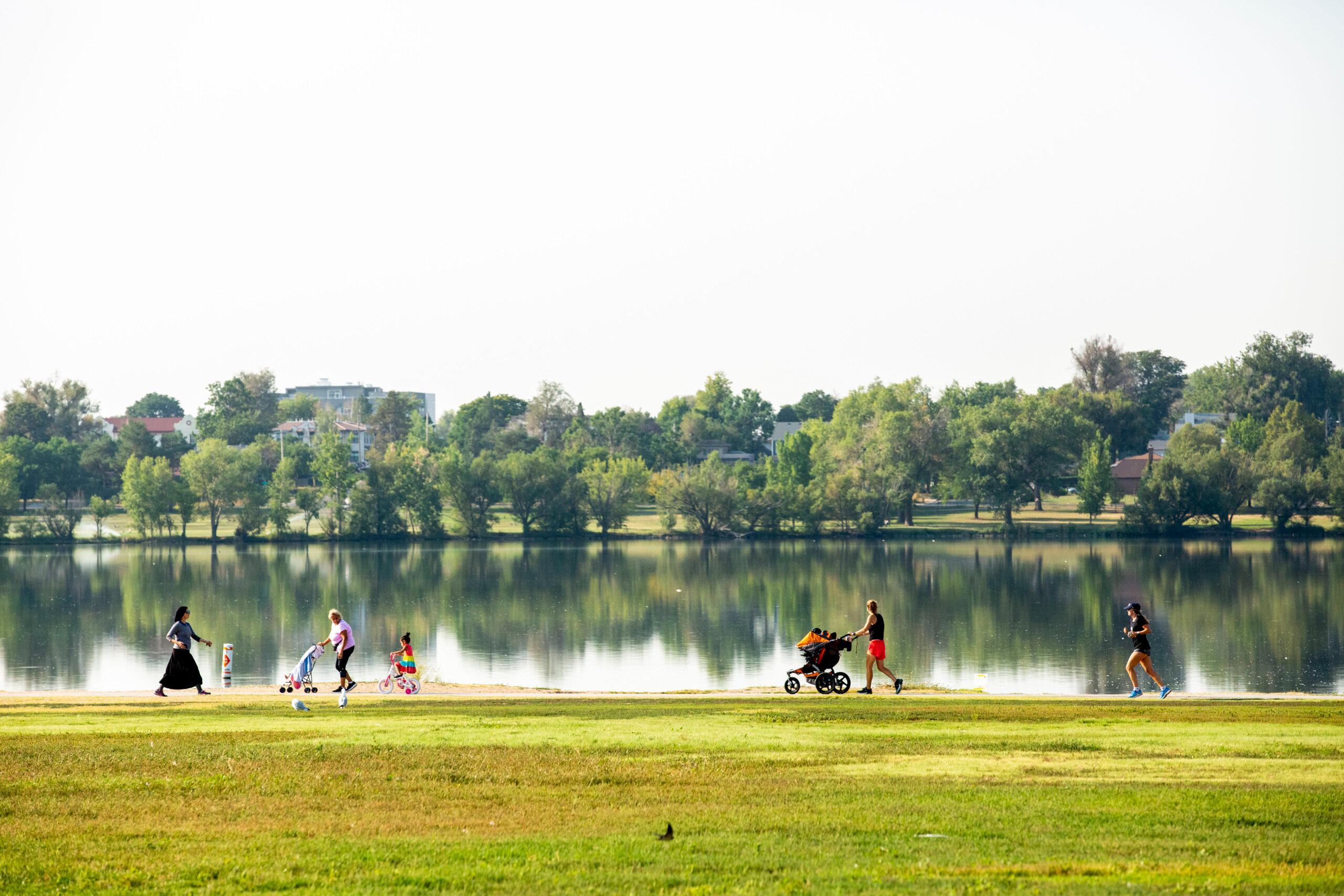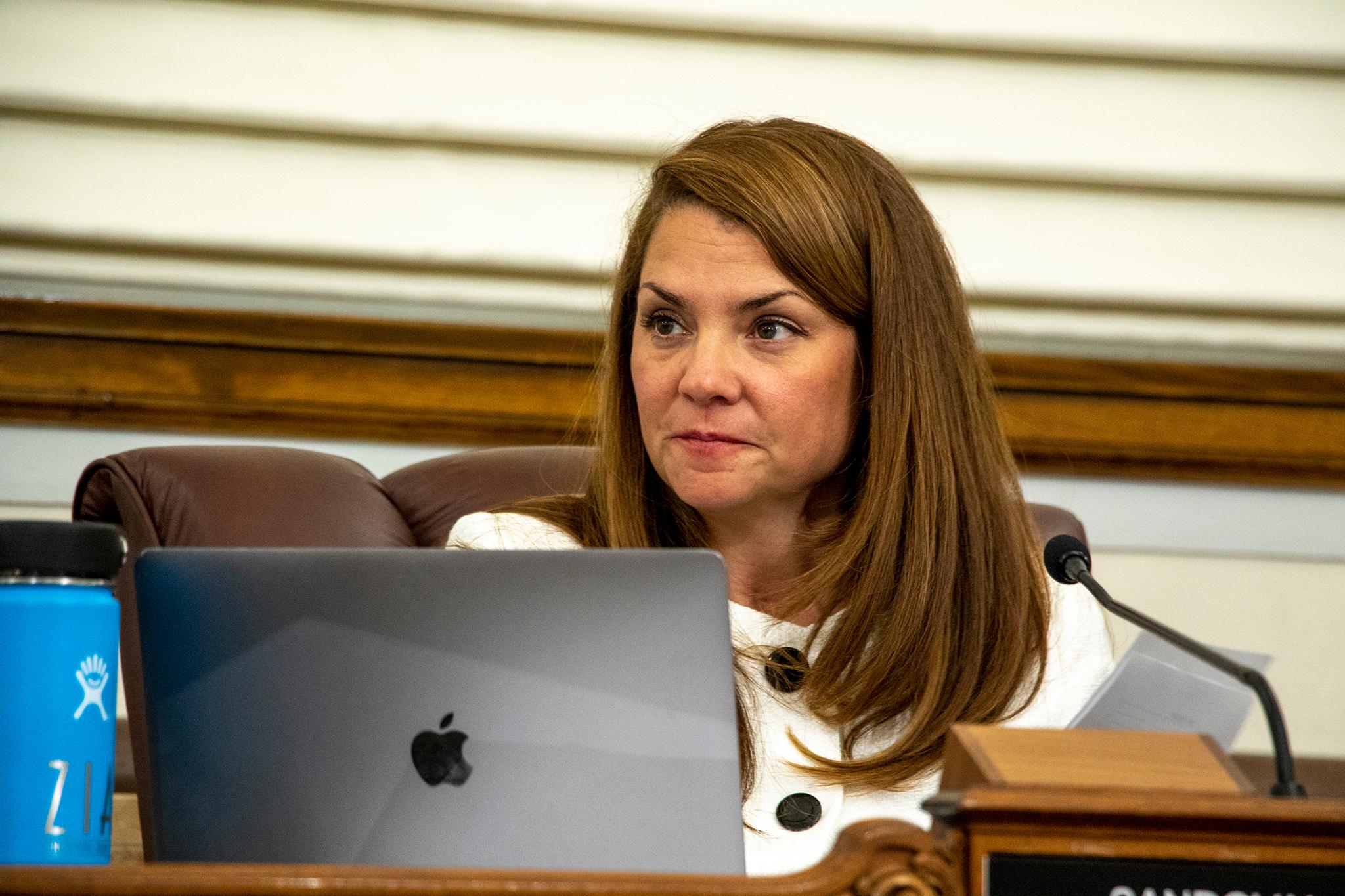Because it's been such a quiet year for news, it seemed important to do some muckraking about a controversy that has haunted northwest Denver since Civil War times: Why is there a Sloan, Sloans, and Sloan's Lake?
The lake, park and neighborhood are all named after Thomas M. Sloan, a farmer who, as the story goes, hit an aquifer while digging a well on his property in 1861. He sprung a leak that helped populate what we now know as -- or at least some know as -- Sloan's Lake. A few people also know it as, ahem, Sloan's Leak.
Denver Parks & Recreation lists the official name of the park in the possessive. But it took fed-up local Roger Oram to make that happen after the city put up a sign in the 1990s calling the park "Sloan Lake."
"It annoyed me," Oram told Westword's Jonathan Shikes in 2002 in a well-researched and charming piece about local history and municipal matters. "Thomas M. Sloan himself called it Sloan's Lake because it belonged to him. And all the people here in this neighborhood call it Sloan's Lake. I think that it's an important thing to get history right."

Denverite was unable to reach Oram, who played a role in deciding what history is "right" -- which is a question in and of itself. For example, the land might've been called something else when Arapahos and Cheyennes were in the area. According to "Northside Story," a book by Denver historian Phil Goodstein, some contemporary accounts "asserted that Indians used it as a place for horse races." Another account said the area was used as a bison wallow, a place where the land depresses naturally to hold rainwater.
And then there's the issue of local culture.
City Councilmember Amanda Sandoval grew up in the neighborhood -- aka the Northside -- and when asked via text about the lake's one true name, she quickly and confidently wrote, "Sloans."
"In the Latino culture, not everyone does it, but my grandma was notorious for doing it -- she called Safeway 'Safeways' and Target 'Targets' and made everything plural," Sandoval later told Denverite, giggling. "It's so funny. It's like this Spanglish, right? I don't know where it came from."
Sandoval used to lovingly make fun of her father, a former state senator, for doing the same thing.
"Are you going to go to the Safeway on 44th and on 26th, dad?" she remembers razzing.

For Sandoval, it's Sloans because that's what it has always been. She compares the situation to La Raza Park, which used to be called Columbus Park until the councilmember led an effort to make its colloquial name official.
Still, just last month, her office sent out a press release heralding a rezoning attempt in Sloan's Lake. Sandoval laughs at the incongruency.
Future historians will surely be confused, in part because Google Maps, the world's most popular atlas, seems to be hedging its bets.
Zoom in and out on the area and you'll see that all three versions of the name are represented. Google calls the neighborhood Sloan Lake. It calls the park Sloan's Lake Park and the lake itself two different names: Sloans Lake and Sloan Lake. What?

Courtesy: Andrew Kenney's Google Maps app
Meanwhile, Denver's open data catalog on statistical neighborhoods (a public government database) calls the area Sloan Lake. So does the United States Census.
Contemporaries of Sloan (the guy, not the body of water) gave him ownership with an apostrophe-S. In 1874, describing how a boat ferried people to the lake on a canal from downtown, the Denver Times boasted: "Now the canal is built, the boat ready, and regularly engaged in making trips to Sloan's Lake and back." The Times gave Sloan ownership again in 1898 in an editorial supporting a public park before it existed.
"Well Sloan doesn't own it, does he?" posits Joseph Morrell, who has lived in the neighborhood since 1980. "An apostrophe-S is possessive. I don't think he's alive to own it!" He adds that it's not Washington's Park; it's Washington Park.
Morrell, 82, is head of Sloan Lake Geriatrics and Geeks, a registered neighborhood organization. (His group carries a scandal of its own, though, given that it goes by the abbreviation SLUGG. Where does the 'U' come from, Joseph?)
Morrell is a bit cranky with the state of things around the lake, a place he says has "blight," as evidenced by volunteer groups cleaning up the area. That's the city's job, he says, and he "won't enable that behavior."
But he also loves the place. The park is in his living trust, he says, which is one reason he feels so strongly about the name.
"Who was Sloan?" Morrell said. "He was a farmer who happened to dig a hole and water spouted out of it. We ought to name it after someone worthwhile, someone deserving. Someone like Nettie (Moore)."
What would you name it, Mr. Morrell?
He joked, "Well, I would name it Morrell Lake."












